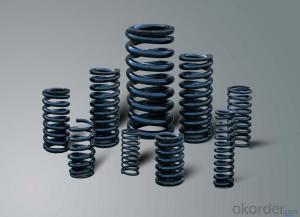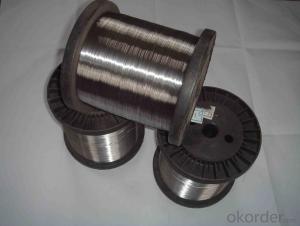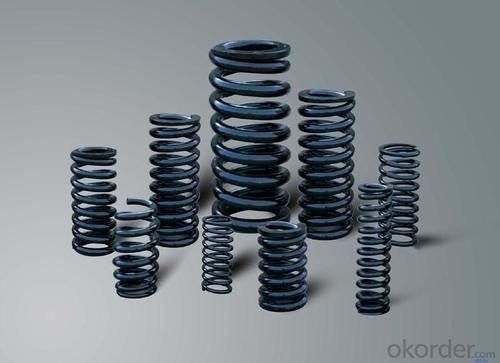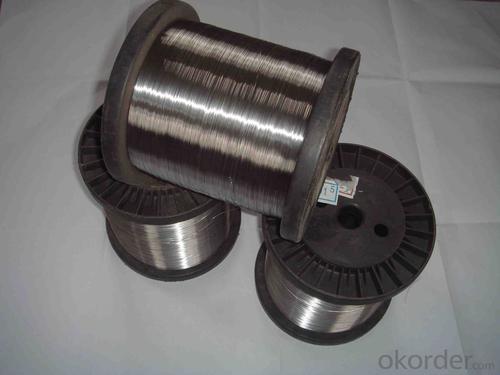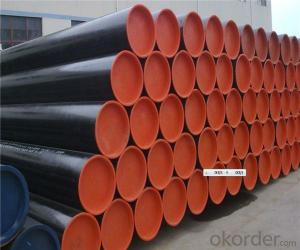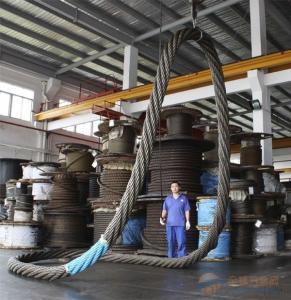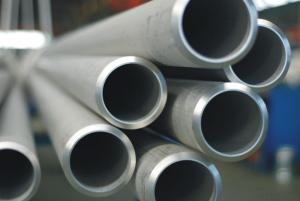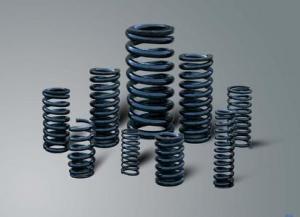Stainless Steel Spring Wire Hot Sale and High Quality
- Loading Port:
- Shanghai
- Payment Terms:
- TT OR LC
- Min Order Qty:
- 500 kg
- Supply Capability:
- 10000 kg/month
OKorder Service Pledge
OKorder Financial Service
You Might Also Like
1.Packing And Delivery
Package: Seaworthy package
MOQ: 0.5 tons
Delivery: 15-20 days
Monthly Output: 100 tons
Payment : 30%T/T in advanced+70% balanced;irrevocable L/C at sight
Remarks: All-risk insurance and accept the third party test
Port : Shanghai
AISI 316 high tensile strength stainless steel spring wire
| Detail as follows: | |
| Standard | AISI,ASTM,GB,SUS etc |
| Grade | 201,202,204,301,303,304,304L,310,316,316L etc |
| Diameter | 0.7mm-14.0mm |
| Surface | Bright or matt |
| Condition | hard |
| Tolerance | +/-0.03mm |
| Length | According to customers’ requirement |
| Packing | Packed by weaved bag or according to customer's requirements |
| Technology | Cold drawn |
| Application | Spring |
| Productivity | 300 tons/month |
| MOQ | 100KG |
| Note | We can produce other standard as the customers' requirement |
1. Competitive price and quality from our own factory
2. Approved by ISO9001, CE, SGS every year
3. Best service with 24 hour`s reply
4. Flexible payment with T/T,L/C , paypal, kunlun bank, western union, etc.
5. Smooth production ability(50000tons/month)
6. Quick delivery and standard exporting package
7. OEM/ODM
- Q: Can steel pipes be used for sewer systems?
- Yes, steel pipes can be used for sewer systems. Steel pipes are commonly used in sewer systems due to their durability, strength, and resistance to corrosion. They are able to withstand the harsh conditions and high pressure of sewage flow, making them a reliable choice for sewer infrastructure.
- Q: What are the safety regulations for working with steel pipes?
- The safety regulations for working with steel pipes may vary depending on the specific circumstances and location, but some common safety measures include wearing appropriate personal protective equipment (PPE) such as gloves, safety glasses, and steel-toed boots, ensuring proper handling techniques to prevent injuries, using proper lifting equipment to prevent strain or back injuries, implementing proper ventilation and respiratory protection when working in confined or poorly ventilated spaces, and following proper procedures for welding, cutting, or bending steel pipes to minimize the risk of fire or explosions. It is essential to consult and adhere to local safety regulations and guidelines to ensure a safe working environment when dealing with steel pipes.
- Q: What is the difference between seamless and ERW steel pipes?
- Seamless steel pipes are made without any welded joints, resulting in a uniform and continuous structure. On the other hand, ERW (Electric Resistance Welded) steel pipes are created by welding the edges of the steel strip or coil together, forming a seam. This seam may be visible on the surface of the pipe. While seamless pipes are considered stronger and more reliable due to their uniform structure, ERW pipes are more cost-effective and commonly used for low to medium pressure applications.
- Q: Outside diameter 60, thickness 3.5 seamless steel tube, how many kilograms per meter?
- Steel tube Kg/m (including seamless steel tubes and welded tubes) theoretical formula per meter weight: W=0.02466 * S * (D-S)Of which: S - wall thickness (mm), D - steel tube diameter (mm), W - kg / M
- Q: Can steel pipes be used for transporting gases?
- Yes, steel pipes can be used for transporting gases. Steel pipes are known for their strength, durability, and resistance to corrosion, making them an ideal choice for transporting various gases over long distances. Additionally, steel pipes can handle high pressure and extreme temperatures, ensuring the safe and efficient transportation of gases.
- Q: What are the different coatings applied to steel pipes?
- There are several different coatings that can be applied to steel pipes to enhance their corrosion resistance and durability. Some common coatings include epoxy coatings, polyethylene coatings, zinc coatings (galvanization), and polyurethane coatings. Each coating has its own specific benefits and is chosen based on the intended application and environmental conditions.
- Q: How are steel pipes used in high-rise buildings?
- Steel pipes are used in high-rise buildings for various purposes, including structural support, water supply, and sewage disposal. They are commonly used as columns and beams to provide strength and stability to the building's framework. Additionally, steel pipes are utilized for plumbing systems, carrying water from the ground floor to the upper levels, as well as facilitating the disposal of wastewater. Overall, steel pipes play a crucial role in ensuring the safety and functionality of high-rise buildings.
- Q: How are steel pipes repaired if they are damaged?
- Steel pipes can be repaired if they are damaged by various methods such as welding, pipe lining, or using repair clamps. The chosen repair method depends on the extent and type of damage to the pipe.
- Q: What are the different grades of steel used in manufacturing pipes?
- There are several grades of steel used in manufacturing pipes, including carbon steel, alloy steel, stainless steel, and duplex steel. Each grade has distinct properties and characteristics that make it suitable for different applications and environments.
- Q: Are galvanized steel tubes the same as degaussing steel tubes?
- And the method of magnetic field created by means of electromagnets or permanent magnets. For analysis of residual magnetism, see table (1), select the demagnetizing method and system in combination with the conditions of the construction site (for example, given equipment, etc.). Table 1 magnetic remanence grade and welding conditions
Send your message to us
Stainless Steel Spring Wire Hot Sale and High Quality
- Loading Port:
- Shanghai
- Payment Terms:
- TT OR LC
- Min Order Qty:
- 500 kg
- Supply Capability:
- 10000 kg/month
OKorder Service Pledge
OKorder Financial Service
Similar products
Hot products
Hot Searches
Related keywords
